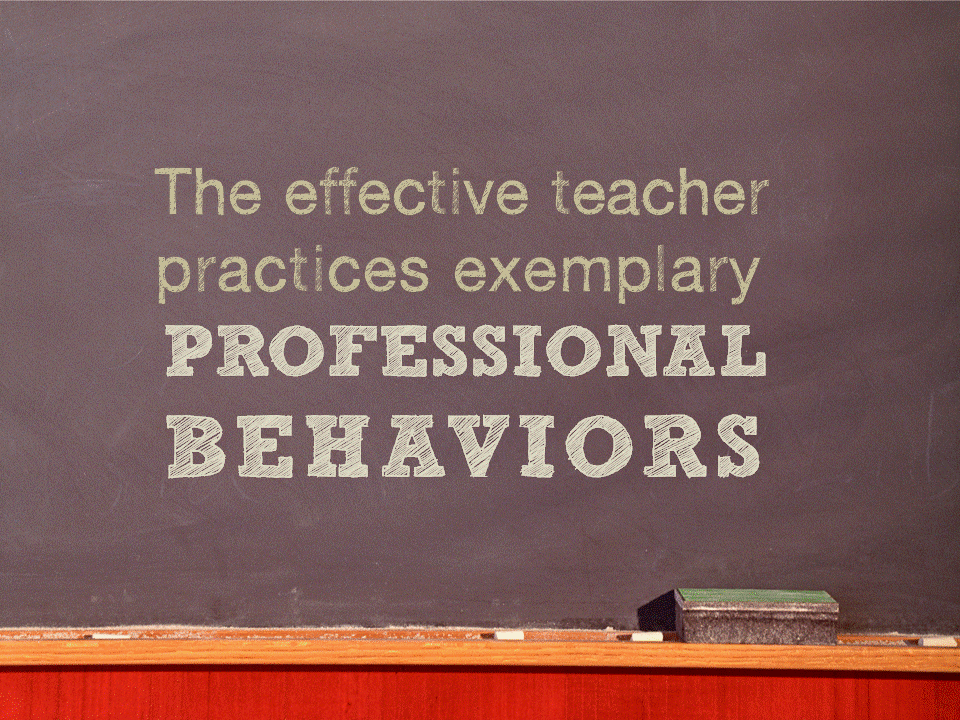Performance Standard 9
Performance Standard 9: Professionalism:
The teacher exhibits a commitment to professional ethics and the school’s mission and participates in professional growth opportunities to support student learning, and contributes to the profession.
|
Performance Indicators at the Level III Level 9.1 Carries out duties in accordance with federal and state laws, Code of Ethics, and established state and local school board policies, regulations, and practices. 9.2 Maintains professional demeanor and behavior (e.g., appearance, punctuality and attendance). 9.3 Respects and maintains confidentiality. 9.4 Evaluates and identifies areas of personal strengths and weaknesses related to professional skills and their impact on student learning and sets goals for improvement. 9.5 Participates in ongoing professional growth activities based on identified areas for improvement (e.g., mentoring, peer coaching, course work, conferences) and incorporates learning into classroom activities. 9.6 Demonstrates flexibility in adapting to school change. 9.7 Engages in activities outside the classroom intended for school and student enhancement |
|||
|
Performance Rubrics |
|||
|
Level I |
Level II |
Level III |
Level IV |
|
The teacher candidate shows a disregard toward professional ethics or rarely takes advantage of professional growth opportunities. |
The teacher candidate inconsistently exhibits a commitment to professional ethics, participates in professional growth opportunities to support student learning, and engages in reflective practice. |
The teacher candidate consistently exhibits a commitment to professional ethics, participates in professional growth opportunities to support student learning, and engages in reflective practice. |
The teacher candidate continually engages in a high level of professional growth and application of skills. (Teacher candidates rated as Exemplary continually seek ways to serve as role models or teacher leaders. This level is not intended for formative assessments of teacher candidates and may only be used in the summative assessment with proper documentation of the teacher candidate’s consistent performance at this level.) |
|
Examples of Evidence/Artifacts to demonstrate performance on this standard: |
|||
|
|||
|
What it is: |
What it isn't: |
||
|
|
||
|
Sample Questions for Conferencing: |
|||
|
|||
Reference and for more information visit
Office of Professional Education Services
-
301 Baytree Road
Valdosta, GA 31698 -
Mailing Address
1500 N. Patterson St.
Valdosta, GA 31698 - Phone: 229.219.3601
